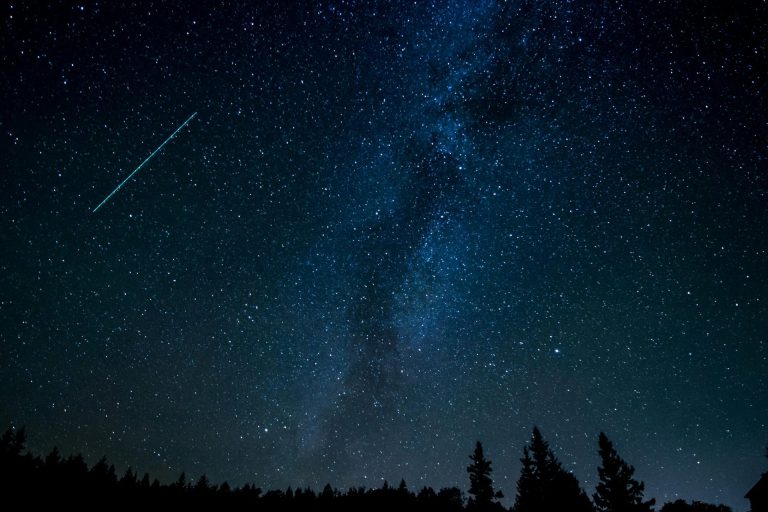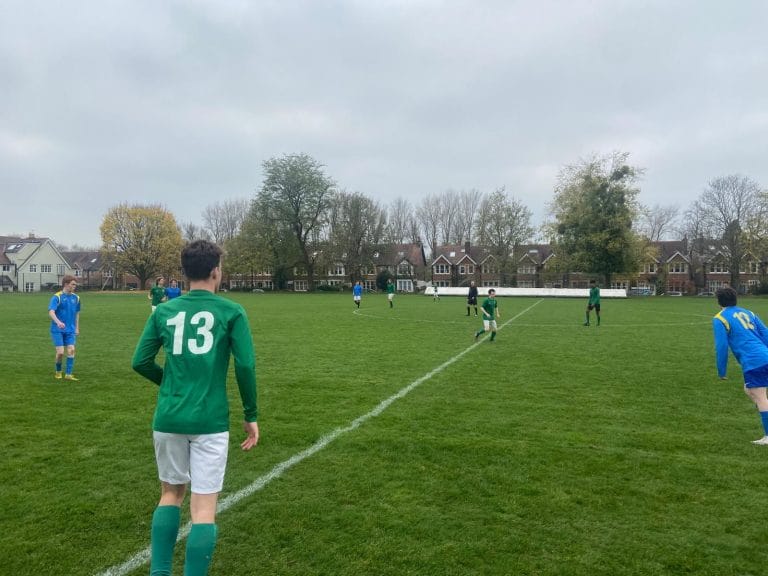An international team of researchers has confirmed the existence of an exoplanet first identified by Oxford researcher Dr Michael Cretignier in 2022. Researchers have described the planet as “among the closest Earth-analogues we know about” giving it promising research potential.
An exoplanet is a planet which orbits a star outside our own Solar System. This particular exoplanet has a mass six times that of earth and orbits around its host star every 647 days. Importantly, like Earth, the planet has an elliptical orbit in the ‘Goldilocks’ or ‘habitable’ zone, which refers to an area around a host star where liquid water can exist – an essential ingredient for supporting life.
The exoplanet, known as HD 20794 d, was confirmed by analysing 20 years of data from the HARPS and ESPRESSO spectrographs in Chile, which are instruments used to discern the composition and motion of celestial objects through separating light into its component colours. The lead author of the paper which confirmed the planet’s existence, Nicola Nari, noted that “very few instruments in the world can achieve the level of precision required for a discovery like this.”
The exoplanet can be considered a near neighbour given that it is only 20 light years from our own Solar System. According to Dr Cretignier in the University of Oxford press release this means that “there is hope for future space missions to obtain an image of it”. He added “I am now very enthusiastic to hear what other scientists can tell us about this newly discovered planet.”
The discovery has created exciting opportunities for future research. Fellow researcher Alejandro Suárez Mascareño said that while the planet is not a second home for humans, its position and orbit pattern give scientists a unique opportunity to study how conditions for habitability can change over time and how such variations may influence the evolution of the planet’s atmosphere.
Researchers confirm existence of exoplanet in the habitable zone
Galentine’s: The real love story
My first proper Galentine’s Day was my first year of university, and honestly? It was one of the most wholesome nights of my life. Picture this: a chaotic shopping trip for heart-shaped decorations at Flying Tiger, a lot of questionable budgeting decisions, and an obscene amount of fairy lights. The joy of transforming a random college room into a pink-and-red paradise was unmatched. Of course, the price tag was less joyful, but what is financial responsibility when you are making memories? My memories associated with Galentine’s will always be ones of pure happiness and community, but I definitely believe the aesthetics should match.
Valentine’s Day? Cute. But Galentine’s? Revolutionary. There is something wildly powerful about a group of girls coming together to celebrate each other, proving that love is not reserved for candlelit dinners and cheesy couple posts. It is also the late-night venting sessions, the emergency snack runs, and the friends who make life a little less terrifying.
There is also something so refreshing about putting real energy into friendships the way people do for romantic relationships. The matching pyjamas and coordinated Instagram posts are fun, but the real magic of Galentine’s is in the way it makes friendships feel as valuable as relationships. Society loves to push the idea that romantic love is the ultimate goal, but have you ever experienced the sheer power of a room full of women hyping each other up?
Of course, capitalism has caught on. The world was quick to monetise a day dedicated to single girls, because nothing escapes the marketing machine. There are targeted sales, themed gifts, and more pink-themed everything than you could ever imagine. And yes, I contributed to the economy with my impulse purchases. But you know what? If I am going to be spending money, I would rather it be on a night that makes my friends feel loved and celebrated rather than overpriced roses and underwhelming chocolates. That all goes to say that the capitalist nature of the holiday, like any other, can creep up unintentionally and when you least expect it. Even I have fallen victim to the over perfect Galentine’s Instagram picture, over-curated and not as fun as the memories of the activities that it showcases.
The real beauty of Galentine’s is that it flips the narrative. It is a reminder that love is not only for romance. It celebrates community, support, and, frankly, girl power. In a world that constantly pits women against each other, choosing to uplift your friends is a radical act. So here’s to the platonic soulmates, the 2am crisis responders, the girls who will listen to you cry about the same situationship 50 times (even on Galentine’s), and the girls who will scream “Slay” at you across the dancefloor.
Love is love, and there is no greater love than girls supporting girls. Happy Galentine’s to all the amazing women at this university. May we know them, may we be them, may we celebrate them!
Mini-crossword: HT25 Week 4
Previous mini-crosswords:
- Week 0 (theme: Oxford colleges)
- Week 1 (theme: Notable Oxford writers)
- Week 2 (theme: Oxford pubs)
- Week 3 (theme: Oxford libraries)
For more crosswords and other puzzles, pick up a Cherwell print issue from your JCR/Plodge!
A manifesto on self-care: Going back to basics
Searching “self-care” on TikTok will inevitably leave you a little confused about how best to spend your ‘me time’. Some videos take a wellness angle – emphasising green juice, pilates, and hot girl walks. Some promote beautification – biweekly hair masks, exfoliating, and taking coconut oil baths. Others suggest we should prioritise simple pleasures like comfort foods, favourite TV shows, a cosy bed and candles. Which is correct?
The TikTok model of self-care is somewhat problematic. Firstly, it’s highly commercial – often suggested videos are actually adverts for sponsored products. While I understand the benefits of retail therapy, it’s a depressing and out of touch notion that the only way to show yourself love is by buying an expensive moisturiser.
Another issue is that self-care on TikTok is solely aimed towards women. A search for “self-care for men” yields basic hygiene and appearance related videos. It is certainly true that many of the beauty rituals typically classified as “self-care” tend to be more closely associated with women’s health and wellness. But surely caring for both your physical and mental health should transcend gender barriers?
I have long held a rather different view of self-care, focusing on small-scale, intentionally self-indulgent acts instead of a three-hour bath routine. For me, self-care is as simple as going beyond what is necessary in order to make yourself that extra bit happier. It can be done little and often, in basically any context.
I think we should care for ourselves in the same way that others show us care. My dad, one of the kindest people I know, is big on the little, whimsical gestures of love. When I was younger, he liked to arrange my food in shapes: flowers of cucumber sticks, towers of toast squares. Once, my mum asked for half of his wagon wheel, and rather than breaking one down the middle, my dad cut a heart shape out of the centre (which we all know is the best bit of a wagon wheel). These acts are not necessary and don’t require much extra effort, but go a long way in cheering someone up.
A friend recently sent me a picture of the chicken wrap she made for dinner, and I noticed she had toasted the outside of the wrap. This, I told her, is self-care. It’s not necessary: it doesn’t add nutritional value, and the dinner would have been fine without it. It takes time and adds an extra pan to your washing up. But it made her happy.
As Oxford students, we are very busy. Many of us are taking sole responsibility for basic self-sustaining acts – cooking, cleaning, laundry – for the first time in our lives. It’s easy to get lost in the academic, social whirlwind that is an Oxford term, and revert to doing the bare minimum to take care of ourselves. An expensive, time-consuming, over-commercialised view of self-care isn’t useful for us. But I don’t think this means we should reject it as a concept entirely.
Maybe when you make your bed, you should tuck in the covers like they do in a hotel. Or when you clean your bathroom, make one of those fancy triangle toilet paper folds. Plate your food up nicely, rather than eating out of the pan. You’d probably do this sort of thing for someone else. Maybe it’s time we show the same love and care to ourselves.
In the Beginning
I was alone with the earth and the sun before you
came along: there was no life, no song, not even words.
My hope had been lost to the breeze, reveries strung up
on imagined poplar trees. Before war, before Ramses. You
were still nebular then, too embryonic to be captured by
the tip of my fountain pen. Before fear, before rain,
before prose or pain.
I was left to despair,
to beat hard ground until it yielded
love somewhere. This was before the Lord’s prayer,
before Lord—and I swear I cried gold on the day the moon
broke its mould and released you. Out of the strata of
the rock and the bacteria of yet uninvented livestock,
you came forth. My new sun.
Loch Ness Monster less likely than Chewbacca: Oxford scientist
University of Oxford biology professor Timothy Coulson has recently argued against the existence of cryptids such as the Loch Ness Monster, Bigfoot, and the Yeti in an article written for The European. Coulson cites the lack of credible evidence and their incompatibility with evolutionary science, concluding that they are all just “fun figments of our imagination.”
Professor Coulson argues that the extensive effort to survey biodiversity, including the use of highly effective camera traps, makes it extraordinarily unlikely that any large, undiscovered species remain undetected. Hundreds of these motion-activated cameras have been deployed for years in areas where Bigfoot and the Yeti are rumoured to exist, yet not a single credible recording has surfaced. For these large animals, the probability of their absence exceeds 99% relatively quickly.
Professor Coulson told Cherwell: “It is more likely that somewhere in the universe, Chewbacca’s cousins are living on a planet they call Kashyyyk.”
At Oxford, Coulson is a Professorial Fellow at Jesus College and former head of Zoology. His work focuses on how changes in apex predator numbers impact ecosystems over long time periods. Coulson has just published his first popular science book entitled A Universal History of Us: A 13 Billion Year Tale from the Big Bang to You, which explores the origins of the human species by incorporating many different scientific disciplines.
In the article, he argues that biologically, Bigfoot’s existence is unlikely. Great apes evolved in Africa, Asia, and Europe, and the only one to reach North America is Homo sapiens, arriving just 16,000 years ago—far too recent for a new species to evolve.
Similarly, the Loch Ness Monster is frequently speculated to be a close relative of the plesiosaur, a marine reptile that went extinct 66 million years ago. While fossil evidence confirms that plesiosaurs existed before the dinosaur extinction, no remains have been discovered of the millions of plesiosaurs that would have existed since then if the species had survived up to the present.
Professor Coulson finds belief in cryptids amusing, noting, “You can’t have a sensible discussion with people who do not look at evidence and make up evidence-free narratives in their head. There is little prospect of changing the mind of such folk.” He has “more rewarding things to spend my time on than engaging in a futile debate.”
As for the Loch Ness Monster, scientific exploration has been far less extensive. While it’s impossible to rule out every unknown species, the idea that a large, undiscovered creature has gone unnoticed for decades is highly improbable. Professor Coulson tells Cherwell that people who still choose to believe in the existence of these creatures dismiss concrete evidence against their existence and pin their beliefs to hoax photos. He notes an anecdote of a large model of the Loch Ness Monster created for a film reportedly being lost in the Loch—potentially fueling mistaken sightings.
Unlike cryptids, Coulson acknowledges a “good possibility” that aliens exist. While we have thoroughly explored Bigfoot and Yeti habitats, we have only studied a “very tiny fragment” of the universe. Our search for extraterrestrial life has lasted just a century—a blink in the 13.8-billion-year history of the universe—and our technology remains far from capable of exploring it fully.
But regarding belief in cryptids, Coulson isn’t too concerned, remarking, “Let them believe their nonsense if it makes them happy.”
Mac Miller grapples with mortality on ‘Balloonerism’
When the ‘D’ rings out from the organ on the dream-like second track of Mac Miller’s Balloonerism, it feels like the beginning of an ascent into open heavens. It’s ironic but fitting that the artist’s latest posthumous release is one so outwardly concerned with his own mortality. Mac first speaks over five minutes into the LP, grappling with the inevitability of his own death. He treats his rise to fame as the opening of a Pandora’s Box that solidified his fate as a doomed star, musing:
“I gave my life to this shit, already killed myself.”
Miller spoke openly about his drug use during his life, and Balloonerism is no different from the rest of his catalogue in tackling the subject of addiction. Speaking on his Faces mixtape – recorded around the same time as Balloonerism in 2014 – Mac remarked: “every song is about coke and drugs”. Whilst Faces feels like the work of an artist in a downward spiral, Balloonerism sounds as if it were recorded in a state of purgatory. On the track ‘Excelsior’, Miller reminisces about his early life amidst the sounds of playing children: “Me I used to want to be a wizard, when did life get so serious? Whatever happened to apple juice and cartwheels.” This makes for haunting listening knowing the eventual outcome of Mac’s life – an outcome that Miller himself seemed already aware of – but also acts as commentary on his musical progression from the care-free to the introspective.
Sonically and stylistically, Balloonerism fills a gap in the Miller canon between the playful frat-rap of his early mixtapes and the sincerity of his later work. This is the work of a maturing musician, and an early instance of Mac using his craft as an outlet for his anxieties about mortality. No track exemplifies this better than ‘Funny Papers’, in which Mac jokes about seeing reports of a suicide in the ‘funny papers’ – a Second World War term for the cartoon section of a newspaper. There’s an effortlessness in the way he juxtaposes the joyful with the somber. Even in the wake of a first verse tackling a subject as heavy as suicide, it’s hard not to smile hearing Mac’s playful tone on the refrain: “The moon’s wide awake with a smile on his face as he smuggles constellations in a suitcase.”
Just as his lyrics tackle existential questions with almost childlike metaphor, Mac’s delivery glides between languid and upbeat throughout the album. The more upbeat ‘Stoned’ sees Mac rapping over a hallucinatory beat that fuses psychedelic chirps with a head-bopping guitar riff, but despite its hooks it is still clear this is not a grab for commercial success, but another fragment of an album that Mac is making for himself and his most devoted fans. This undeniable honestly persists in the final two tracks, with the hopeful refrain of “the best is yet to come” on album-highlight ‘Rick’s Piano’ bearing truth regarding the exceptional quality of Miller’s later work. It is after all impossible to listen to Balloonerism without lamenting not only the loss of the man, but of the music he was yet to produce.
The twelve-minute closer feels like the end of the ascent that began at the start of the album, with Mac’s words inevitably lingering on the mind:
“Living and dying are one and the same.”
Clear handballs, dodgy calls and ‘learn the rules’
“Fancy reffing my football match today?”
It was an innocent enough message. My footballing ability might not be much to shout about, but I know the game well enough. Plus, this would be a 2s match – and anyone who’s been involved in the reserves’ divisions knows the standard isn’t exactly elite.
‘Why not?’ I thought to myself. ‘I’ll head up there, run around a bit, and try something new. What’s the worst that can happen?’
So I arrived at the sports ground, where after introducing myself to both sides, I was helpfully given a whistle. It was at this point that I realised something I’d never properly appreciated about the role of the referee: just how lonely it is. There’s something indescribably humiliating about doing half-arsed heel flicks in the middle of the pitch by yourself, whilst 20-plus people perform equally begrudging warm-ups at opposing ends.
With the home team having the luxury of substitutes, two were co-opted to be my linesmen. It didn’t help that one of them didn’t know the offside rule, but it was better than nothing.
It all started off quite smoothly. There were a few teething problems, but the most contentious decision for the first half an hour or so was whether to award a foul throw (I didn’t – this is 2s football).
I gradually got used to keeping up with play, signalling decisions, and even found myself playing an advantage. Was it all really this easy? Maybe I’d missed my calling all along? I got to watch (an admittedly low quality) football game and be involved at the heart of it all, whilst laughing with players about their ability (or lack thereof, as I could sympathise with).
It was that false sense of security, however, that would prove my downfall. In football, things can change in an instant, and so when a player from the away side went down in the penalty area, I suddenly had a decision to make. It felt like time slowed down, with every one of the 22 players turning towards me, waiting for me to either point to the spot, or wave play on.
Now, I’ve not named the teams involved, but those there that day can probably deduce which match this refers to. If they have, they’ll know that of my short lived refereeing career, this was not my finest moment. I could make excuses as to how quickly it happened, and how my view was blocked, but the truth is I should’ve given a penalty. It was a foul, and whilst the attacker went down theatrically (something he didn’t particularly appreciate me telling him immediately afterwards), it didn’t matter.
At that moment, however, I froze. I decided that because I wasn’t absolutely certain it was a penalty, I couldn’t give it, regardless of the incessant calls for me to do so. So, with all of the confidence I could muster, I waved play on. “Not a foul!” I shouted, to the disbelief of the away side (and, more concerningly, some of the home team too).
For the next five minutes, it was all I could think about. I knew I’d messed up and whilst this match hardly had the highest of stakes, I was desperate not to be the reason why one team did or didn’t get a result. So when that same away side scored just before half time I was genuinely relieved. One player ran past and celebrated in front of me. “F*cking disallow that!” he shouted. Ignoring the fact I hadn’t actually disallowed any of their goals, I was nevertheless pleased that my decision was no longer the main story.
The second half is where things turned, with various fouls moving the game into more feisty territory. I did my best to control things (although, without actually having any cards to give out, this was a challenge), but tempers continued to flare.
Those tensions were only exacerbated when, at the very same end I had failed to give a penalty to the away team, I gave one for the home side. In my defence (which, funnily enough, none of the away players seemed to agree with), it was a pretty blatant handball, but upon being told to “learn the f*cking rules,” I don’t think I’d convinced most.
So it was 1-1, I’d given one team a penalty, failed to give a clear one to the other, and every five seconds I was having to blow for a foul to prevent someone’s legs getting broken. It wasn’t ideal.
The away team going ahead again got them off my back (briefly), but an equaliser soon after meant we headed into the final stages level. Frankly – and this is probably not an opinion I should have held as an ‘unbiased’ referee – I was happy with that. It meant neither side would be hugely aggrieved with me, and I could walk away without worrying too much about that penalty decision.
89 minutes had gone, still 2-2. It was getting closer. A few daft tackles slowed the game down even more, and I was not about to add on swathes of injury time. But then the home side found themselves on a counter. As I sprinted up the pitch, I prayed the attacker would miss.
So when the forward slotted it home, I stood motionless. Almost immediately, I had an away player jog past me: “That’s your fault, you f*cking idiot”. ‘Cheers for that,’ I thought.
There was, at this point, no time left. I blew my whistle, and breathed a sigh of relief that it was over. I shook hands with everyone, expecting more criticism. But to my shock, I got none.
In fact, I got praise. “Well done for dealing with that mate.” “Hard work with some of them.” Even the abuser-in-chief, who had just five minutes earlier blamed me for the loss, thanked me for coming down.
I’ve been guilty of it myself – becoming an entirely different person as soon as the game finishes. I even did it as a referee: I’m not sure I’d ever tell a group of people abusing me to “just calm down, lads” in any other walk of life. But for some reason, for 90 minutes, it becomes the norm.
So would I do it again? Probably not.
Would I recommend other people give it a go? Also probably not.
And would I do anything differently? Not really. Probably just learn the f*cking rules.
My Diary: Self-reflection or self-sabotage?
“I never travel without my diary. One should always have something sensational to read in the train” – The Importance of Being Earnest, Oscar Wilde.
Writing a diary is never a neutral act. Whether we aim for truth or “something sensational”, a diary is its own form of fiction – and it shapes our thoughts as much as it records them. The effect of this is often overlooked. We are told that keeping a diary does wonders for your mental well-being. In my case, it only made things worse.
Three years ago, I started keeping a diary. I intended to use it as a record of everyday life – it was my A level summer, and I was sure my newfound freedom would lead to experiences worth recording. But before long, my diary became something else entirely. It was no longer about events – it was all about emotion. I quickly became addicted.
It’s an easy trap to fall into: a diary encourages introspection in a way that conversation rarely can. A diary invites self-reflection, but without knowing it, I began to over-analyse. It was the literary equivalent of doom-scrolling – only, instead of refreshing a digital feed, I was trawling through the most uncomfortable spaces in my own mind.
I don’t think that my diary changed my perception of everyday life, but it did change the way I reacted to it. A bad day became worse as I sat down to write – to dwell in the possible problems – thinking I was helping myself. My diary became a breeding ground for negativity, inflating the importance of trivial problems. We’ve all had moments when a miserable day is lifted by a change of scenery – what seemed like a crisis solved simply by sunlight and fresh air. The way I was using my diary was akin to keeping myself locked inside – left to ruminate on feelings I unknowingly fuelled with each new entry.
Yet keeping a diary can be a beautiful thing. It is a space for reflection, a quiet sanctuary away from the constant noise of the outside world. When I write about moments of happiness, I find that I am able to extend them – reliving and savouring them in the slowed time of the page. Of course, limiting a diary to positive moments is equally unhelpful, undermining the very point of having a space where you can be completely honest. Used properly, a diary can be a tool: a form of silent therapy, a way to work through unresolved feelings and untangle emotional knots. It can be cathartic, too – sometimes, the need to unload is urgent, and the only place that feels safe to do so is within the pages of a book. And, often, as in the case of a child who scribbles down, in rage, a plot to kill their sibling, some thoughts are best kept private.
I used to think of my diary as a place where thoughts might spread freely across the page–a wild garden of ideas. But I have come to realise that by dwelling on what is negative, I had allowed the weeds to spread, crowding out space for growth. Self-awareness is important, but if untended, it can turn into hyper-awareness – a tangled, dark place to be.
A diary is the story we tell ourselves about ourselves. We shouldn’t ignore what is difficult, but we should be mindful of how we engage with it. Our thoughts work like algorithms – the more you think about something, the more it appears. In my early diary entries, I supercharged a cycle of negativity without even knowing. I’m not suggesting that we stop keeping diaries, far from it. Over the years, I have gifted many to a friend in need. But like all relationships, the one we have with our diaries should be conscious. A diary can soothe and create joy, but it can also intensify self-analysis. The key, perhaps, is to make sure we are balanced in the story we tell ourselves.
So, if you’re thinking of keeping a diary, give it a shot – only, make sure you know what you’re getting yourself into.
The purgatory between Oxford and the West Midlands.
When my “yahs” replaced my “yows” I knew I was in trouble. Last year, I wrote a poem about my Black Country accent. I started it before Oxford was even on my horizon, a distant fever-dream, only real for people smarter than me. A year later, I scribbled the end of it while hunched in my uncomfortable office chair, trying to imitate the language of my mother because I couldn’t rely on my own accent for the words anymore. After it was published, I realised something. I was trying to immortalise my background, make it permanent in words, just in case this Oxford thing sweeps me astray. It was a silent fear, but it was poignant, and it stuck.
I came to Oxford as a working-class, state student, thoroughly unprepared for everything. I didn’t know what pesto was, let alone the order you are meant to use the cutlery at a formal. I would stick out like a sore thumb – the girl on bursaries, intimidated by the Rad Cam (it didn’t help that my bod card wouldn’t even let me in the place). But to my disbelief, I wasn’t singled out for saying “yow” instead of “you”.
All of the sudden, the streets I’d known all my life became unfamiliar and unwelcoming. Going from concrete to cobbles changed me at every level. At work, a girl who clearly detested me just three months earlier leaned in and smiled knowingly, saying “you’ve really changed, Es.” At first I laughed and asked why. She said “I don’t know, you’re just…different.” It was amazing.
My accent shifted. I bought linen trousers off Vinted. I started to shop at Urban, although my frugalness doesn’t let me venture beyond the sale section. I put away my false eyelashes, my cheap makeup, my cheap perfumes. I started to understand the differences between wines. And then, after the most life-changing few months of my life, I came back home.
Oxford launches you into a completely other world. You go from being the second-smartest girl in your English class to an unremarkable student in a sea of intelligence. Amongst such smart people, your previous intelligence becomes mediocre. To everyone at home, I’m a bit of a miracle. To everyone in Oxford, I’m not the sharpest tool in the shed. Despite this, I wasn’t quite ready to be launched back to Earth so violently.
Last week, I invited my best mate from high school to visit me. He protested; “I wouldn’t fit in.” I asked, “How do you think I feel babe?”. He said “Yeah, but you blend in now. You talk posh.” I went bright-red and scowled. For someone who clings onto their stash puffer like someone’s itching to snatch it, being told I am what I so wanted to be absolutely breaks my heart. I’m liked, I’m accepted, I’m an Oxford girlie, but how much of my old self was abandoned?
I’m strung between two different ways of life. I can never truly go back home and exist as my parents did. But I’ll never properly be a part of the ‘Oxford class’ either. No matter how hard I scrub, I can never fully rinse away my accent and all the baggage that comes with it. I’ll hold on desperately to each part until I give in or I fall. I’m planning on neither.










